“Deranged Standards Are Only Applied To White People”: Aussie-Style Sushi Spot In NYC Sparks Outrage
In the age of social media, where information flows rapidly, it is safe to say that accusations of cultural appropriation are not taken lightly.
One hospitality worker learned this the hard way when she decided to launch her own business of a certain oceanic cuisine in the city that never sleeps.
An Australian woman was accused of cultural appropriation as a result of opening a sushi shop in New York City
Image credits: @ns_whit
Alex Marks, an Australian entrepreneur, recently opened a sushi bar specializing in what she refers to as “Australian-style sushi”, in New York City’s West Village.
She has since been accused of cultural appropriation by Americans who raised objections due to her non-Japanese background.
Alex, who used to be a lawyer, was subsequently nicknamed “Sushi Sheila”, in addition to being called a “colonizer”, receiving one-star Google review marks as a result of her white ethnicity.
Alex Marks refers to her products as “Australian-style sushi”, whilst her shop is based in New York City’s West Village
Image credits: dailymail
The trolling victim initially garnered recognition on TikTok when she shared her journey of leaving her corporate job to establish the sushi counter in the Big Apple earlier this month.
She has since gone on to create an Instagram account called by her shop’s name, Sushi Counter NYC, which has only six posts for now, and is followed by 1,792 people. As of today (October 27), the comments have been disabled.
Following the backlash, Sushi Counter NYC has turned off the comments on their Instagram page
Haters are trying to take down an Australian-style sushi restaurant in New York


There is no better oppressor than a white immigrant woman selling sushi.
At least that’s how Eric Rivera, a North Carolina-based chef and eternal victim, sees the world.
After seeing that a blonde Australian woman, Alex Marks, had recently opened Sushi counter — a West Village diner that serves “Australian-style sushi” — he launched an online bullying campaign from his lounge chair a whopping 500 miles away.
Mark’s sin? Selling sushi in white condition. Your penance? Complete online destruction – and, if trolls had their way, closure of their business.
On Friday, Rivera, whose parents were from Puerto Rico, nobly took to X, where he has 15,000 followers, to share and mock a TikTok video of Marks explaining her journey from corporate lawyer to corporate Sushi supplier.
He then used the awakened atomic bomb and called her a “colonizer.”
His salvo sparked the biggest fight over cultural food appropriation since 2017 — when two white women who learned the art of tortilla-making in Mexico closed their burrito stand in Portland, Oregon, after receiving death threats.
“But it’s ‘Stralian sushi.’ Give me a break, colonizer,” Rivera posted scathingly, adding, “If you don’t understand why this is a problem, you are the problem.”
As if on cue, the aggrieved social justice keyboard warriors flooded Google with nasty one-star reviews of Sushi Counter. The online harassment became so intense that Marks deleted her TikTok.
Others continued with ignorant drivel, using all the meaningless buzzwords picked out of the viral glossary of intersectionality.
Marks’ “boldness” sparked fear among Rivera’s online students, and an X user named Queer Latifah wrote, “The contradiction and cognitive dissonance is maddening.” [Marks] feels like she can’t “afford” decent sushi in NYC, a place with one of the largest and most diverse Asian populations? Instead, she finances her own sushi shop. Colonization is white and pretty scary to watch in real time.”
According to the logic of Rivera and his rabid fans, one must take a 23andMe test before gaining access to certain sections of the spice rack.
And what a sad, ahistorical view of the world. The very foundation of our American experience can be summed up as a great deal of cultural appropriation—from fashion to food to music to art. Everything is borrowed. Ideas spread, they circulate and people create innovations. Appropriation is ultimately appreciation. The fat that keeps our collective engine running.
Applying Rivera & Co.’s regressive, strict segregation means penalizing innovation – and diluting the hearty, infinitely interesting stocks that fill this melting pot we call America. It would also deny us food like Tex-Mex, almost every kind of pizza, and Chinese restaurant favorites like General Tso’s chicken, beef, and broccoli — a cuisine that has moved away from its earliest formulas and ethnic origins.
Because of the feverish moral panic, one might assume that Marks used brute force to throw a Japanese family out of their store, steal their supplies, money, and money, and plant their own flag on the store.
No, she simply introduced a staple from her homeland that she couldn’t find in NYC. As Marks’ Australian friend told me, her sushi isn’t meant to compete with what you get at an omakase. “It’s based on the on-the-go sushi counters in Australian shopping centers, which are quite basic but so popular at home,” the friend said.
This particular style is served as uncut hand rolls and is sometimes filled with cooked tuna or chicken teriyaki. They have their own take on Asian cuisine Down Under, without the willful ignorance of the naysayers taking the time to learn.
In her video, Marks chronicled the process of sprucing up her quaint shop – a DIY collaboration with friends. Painting, moving furniture, gathering materials. Turning a blank page into something tangible.
She put in hard work, bravery and bravery – things that should still be held sacred.
Rivera, on the other hand, is a flawed champion of this segregationist food movement. Earlier this year, he announced his own plans to open a Puerto Rican-Japanese fusion restaurant in Raleigh, North Carolina. And according to his Instagram page he sells his homemade pasta. Mamma Mia! Don’t you have dignity? That’s just for Italians, buddy.
Fusion and appropriation for me, not you.
Rivera, who once owned a restaurant in Seattle, announced in March that he was offering a pop-up dining experience starting at $750. In comparison, “Gentrifier” Marks, as she was called, sells three rolls for $12 – affordable and affordable.
But crazy people who tried to sink Marks don’t want a system that rewards hard work and good ideas. They want to raze everything to the ground – tear it down and rewrite the rules – so they can keep the wooden spoon and all the power in their hands. They want to subjugate with their silly and empty insults like “colonizer.”
However, there is hope. Shortly after Rivera’s campaign, word spread on social media and a funny thing happened. People started standing up for Marks and The average rating of their shop is up to 4.5 stars on Google.
Rivera has made his account private. So does Queer Latifah.
And sushi counter? They’re still open and serving cheap and cheerful sushi rolls. Maybe a touch of sanity will return.



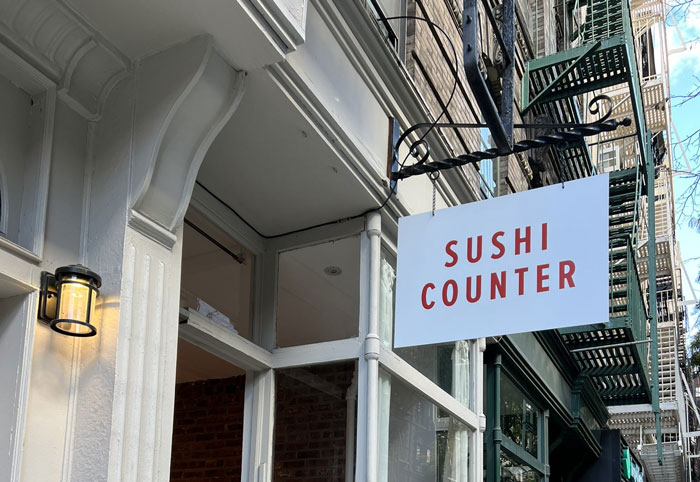
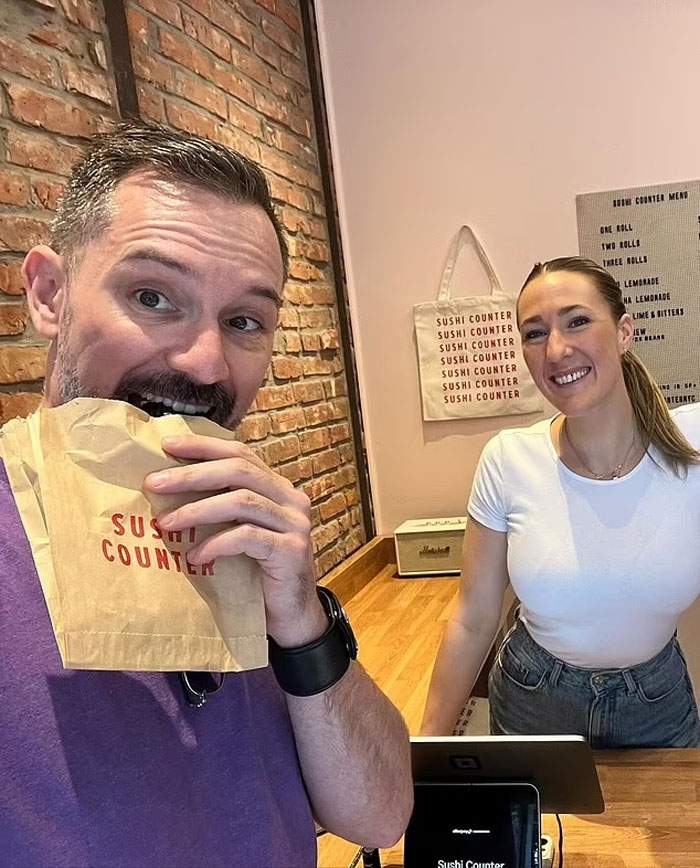
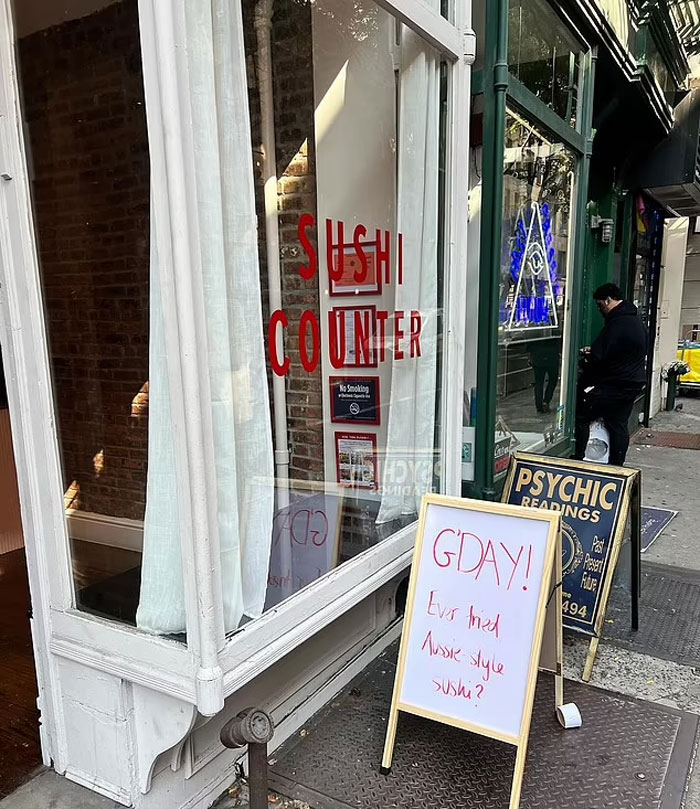
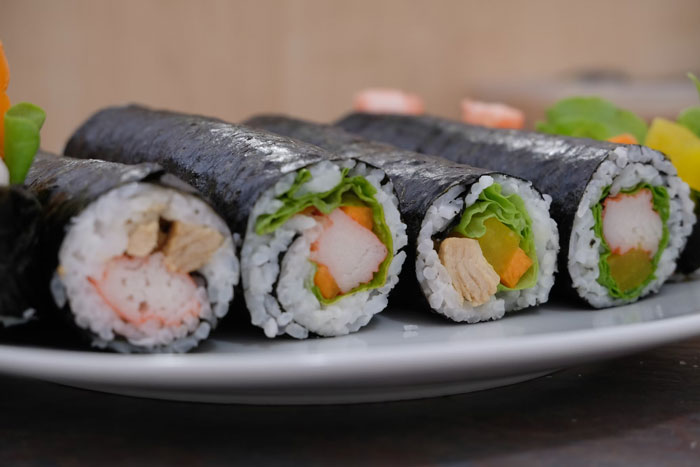
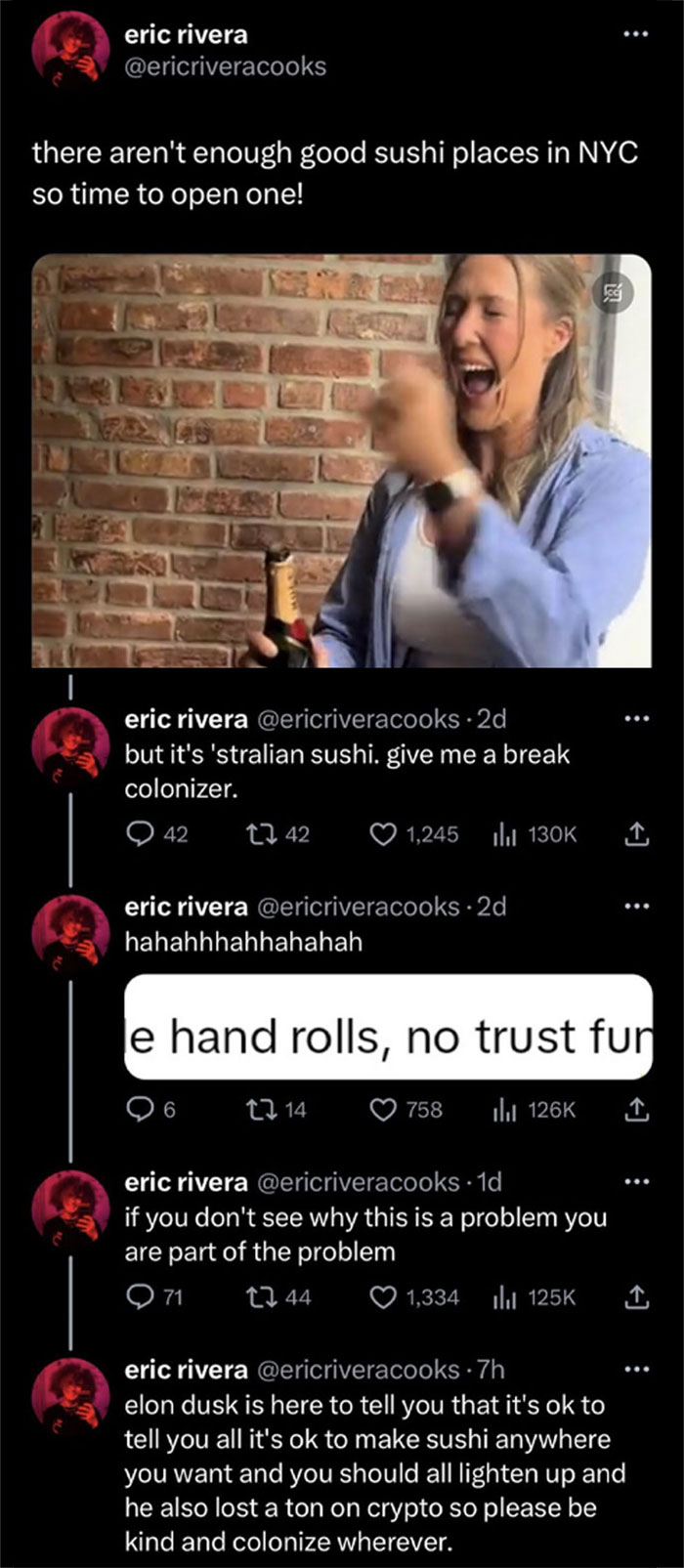
No comments:
Post a Comment